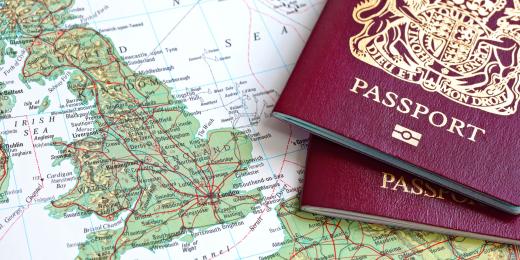When you think of British nationality your thoughts might turn to cricket, the royal family and all the other things that are quintessentially British. For example, complaining about the weather or adopting a stiff upper lip in times of trouble. However, what British nationality and British Citizenship means and feels like to you can be very different depending on whether you are a British national or you are wanting to apply to naturalise as a British citizen.
To speak to an immigration solicitor at OTS Solicitors about British citizenship and how we can help you call us on 0203 959 9123 or complete our online form.
You would think it would be easy to know if you or your child are British citizens but the rules on British nationality are surprising complicated. That is why a number of newspapers have recently featured stories about children living in the UK who are not automatic British citizens.
British nationality establishes a right of abode as well as a right to work in the UK and to hold a UK passport. You might be a British citizen depending on where and when you were born and your parents’ circumstances when you were born.
Immigration solicitors say that the important thing to be aware of is just because a person was born in the UK this does not mean that they are a British citizen. If you have any doubts about your
British Citizenship, or that of your child, it is best to check with an
Immigration solicitor.
If you are not a British citizen, you may be eligible to either:
• Register as a British citizen; or
• Apply for naturalisation to become a British citizen.
A successful applicant for
naturalisation becomes a British citizen. Not everyone who wants to live and work in the UK wants to lose their nationality of origin to acquire
British Citizenship because our nationality can be an integral part of who we are and who and what we identify with.
For those who do not want to lose their nationality of origin to acquire
British nationality there may be the option of dual nationality. UK
British nationality law allows British citizens to hold dual nationality. Dual nationality means an applicant for
naturalisation does not have to sever all legal links with their country of origin. However, although the UK allows dual citizenship many other countries do not do so. Therefore your country of origin may require you to relinquish your nationality of origin when naturalising as a British citizen.
If you feel strongly about retaining your nationality of origin it is best to speak to an
Immigration solicitor to see if it is possible to do when applying for
naturalisation as a British citizen. If the answer is no, an
Immigration solicitor can advise you on advantages of an application for
naturalisation and look at the alternative
Immigration options that best meet your needs.
For example, the option of
Indefinite Leave to Remain Immigration status may be the best
Immigration solution for you if you want to live and work in the UK free from
Immigration control but are not concerned about acquiring a British passport and have no intention of leaving the UK for a period in excess of two years. Alternatively, if you are an
EEA national an
Immigration solicitor can discuss whether an application for Settled Status under the EU Settlement Scheme is the best route for you, depending on your priorities and plans.
• They have lived in the UK for the past five years; and
• They are an EEA national and have had permanent residence status for the last twelve months; or
• They are the spouse or civil partner of a British citizen and have lived in the UK for the last three years and if a non-EEA citizen they have Indefinite Leave to Remain status and if an EEA citizen they have permanent residence status; or
• They have a British parent; or
• They have another type of British nationality, for example from an overseas territory.
Families are as complicated as Home Office
Immigration Rules and
British nationality law. Take the royal family who most would describe as a British foundation. Queen Victoria and Prince Albert were of German heritage. Prince Philip, Duke of Edinburgh was born in Corfu and was originally a prince of Greece and Denmark until he became a British national on his marriage to the queen. Fast forward to 2019, and Prince Philip is great grandfather to Archie, a dual citizen of the USA and UK. So a family that most of us think stands for tradition and all things British is as rich in cultural heritage as many other London families.
If you are interested in applying for
British nationality then it may help to realise that being British and embracing
British nationality is a journey that can start on day one of your settlement in the UK with early
Immigration law advice on your UK settlement options looking at what
Immigration solutions work best for you and your family.
If you are considering applying to naturalise as a British citizen it is best to take expert
Immigration law advice on your
Immigration and citizenship options before making the decision about applying for
naturalisation as a British citizen.
OTS Solicitors are specialist in
Immigration law and
British nationality. The firm is recommended for
Immigration law in the leading law directories, Chambers Guide to the Legal Profession and the Legal 500. OTS Solicitors also have Law Society accredited solicitor status as trusted specialists in
Immigration law.
For information on naturalisation as a British citizen and help with applying to become a British citizen call OTS Solicitors on 0203 959 9123 to speak to one of our experienced London immigration solicitors or complete our online enquiry form.




